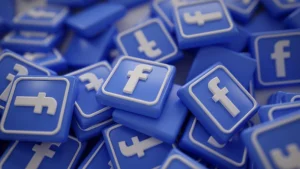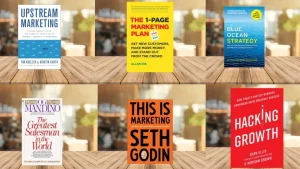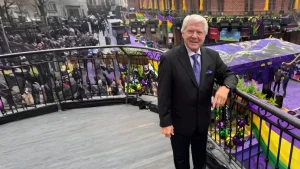In the competitive world of cinema, the success of a film does not depend on its storyline or star power, but prominently on its marketing campaign. Film marketing has changed dramatically from what it used to be, adapting to new technologies, audience behaviors, and cultural changes. From the early days of posters and newspaper ads to today’s more sophisticated digital strategy-filled environments, the intricacies of film marketing campaigns matter to filmmakers and studios alike. This article examines the development, strategies, and effectiveness of film marketing campaigns, and explains what makes them effective in capturing audience attention.
Fight Club
When Fight Club by David Fincher emerged in 1999, the film blew into the world of cinema, full of scandalous themes, black humor, and a critique of consumerist culture that echoed mass views. Adapted from Chuck Palahniuk’s novel, when hitting theaters, it was divisive among critics, obtaining mixed reviews, though it really could have become a cult classic thanks to an unforgettable promotional campaign. With several unorthodox methodologies, the marketing group generated curiosity and word of mouth that took Fight Club to cult status. Ironically, the marketing campaign for Fight Club reflected the themes of rebellion and anti-consumerism on which the film was based.
Right from the beginning, marketers of the film tried to break all the rules of conventional marketing. Instead of using the standard slick promo materials, early marketing was much more subversive.
By creating curiosity and inviting the audience to learn more about what was talked about in this film, it was essentially calling upon the public to be involved in discussions concerning the societal constructs that would be or were about to be hot topics in their lives (Calo, 2005).
The Campaign Behind Toy Story 4
Finally, when Toy Story 4 hit the theatres in June 2019, the world welcomed back some of the most cherished Pixar characters with a lot of style. This was a very highly waited-for movie for all its old and new fans, continuing from where Woody and Buzz Lightyear had left off, yet completely new. But the success of Toy Story 4 was not wholly because of nostalgic appeal and the heartwarming story; the success was part of the after-effect of a well-orchestrated marketing campaign.
Probably one of the distinguishing features of the marketing strategy for Toy Story 4 was a full-fledged digital campaign. Long before its release, Pixar had used social media- Instagram, Twitter, and Facebook push out material and engage fans. The marketing team subsequently introduced a spate of high-quality teaser trailers, vibrant posters, and behind-the-scenes content that tantalized the audience and got them engaged. The first teaser released in November 2018 cleverly introduced major characters while arousing intrigue-like curiosity among audiences (Holly, 2019).
Secondly, Pixar designed interactive content such as quizzes and filters on Instagram and Snapchat, respectively, through which fans could dive into the Toy Story world. Viewers, for example, could have taken the quiz “Which Toy Story Character Are You? “, which would have increased their affinity with the characters and created a network of people who were excited about the release (Mata, 2019).
Black Panther
When Black Panther finally hit theaters in February 2018, it was more than a superhero movie but a cultural landmark that celebrated African heritage and representation within a genre so often dominated by Western archetypes. Helmed by Ryan Coogler, the movie became a touchstone for discussions on race, identity, and cinema. But often overlooked in the discussion of its success is the fact that Black Panther’s triumph was significantly enabled not only by the revolutionary nature of its narrative but also by the brilliant marketing campaign that bonded with diverse audiences worldwide. But probably the most striking about Black Panther’s marketing had to do with the art of representation. It was groundbreaking in that the leading cast and crew were predominantly Black, and it brought vibrancy and African culture into mainstream cinema. That same representation continued into the marketing campaign as a tool to create pride and identity that resonated with audiences mostly from the African and African American communities.
The Dark Knight: A Deep Dive into a Cinematic Phenomenon
When “The Dark Knight” opened in theaters in 2008, it did a lot more than redefine the superhero genre; it set a new benchmark for movie marketing campaigns. Directed by Christopher Nolan, the film was widely critically acclaimed and went on to amass box office returns of more than $1 billion worldwide. Backing that success, however, was an intricately planned marketing strategy that was as imaginative as it was engaging for audiences in the months leading up to the film’s release.
One of the most notable aspects of “The Dark Knight” marketing campaign was its use of viral marketing. It opened a series of cryptic, darkly toned teaser trailers that gave away very little in terms of detail as to what the tone of the film would be. All this caused quite a lot of buzz among the fans and built up much anticipation for them.
Conclusion
From traditional techniques to hi-tech, sophisticated digital approaches, there have been remarkable changes in the way film marketing has been conducted. As the industry continues to adapt to rapidly changing audience behavior and technical development, finding valid ways to connect with potential viewers will become increasingly crucial. The evolution of marketing star power to wielding data foregrounds creative and strategic marketing at the core of a film’s success. Here’s one thing for certain when considering tomorrow: great movie marketing has little to do with just selling tickets; it’s all about giving audiences experiences that they’ll remember long after the credits roll.











